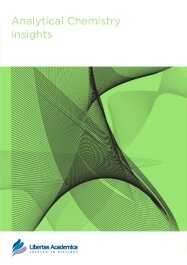

Publication Date: 12 Oct 2007
Journal: Analytical Chemistry Insights

The Third Department of Internal Medicine, Wakayama Medical University, School of Medicine, Wakayama, Japan.
Abstract
Background: Exhaled breath condensate (EBC) is thought to contain substances of the lower airway epithelial lining fluid (ELF) aerosolized by turbulent flow. However, contamination by saliva may affect the EBC when collected orally.
Objective: The purpose of this study was to compare the cytokine expression levels in EBC with those in saliva, and to clarify the influence of saliva on cytokine measurements of EBC.
Methods: EBC and saliva samples were obtained from 10 adult subjects with stable asthma. To estimate differences in the contents of substances between EBC and saliva, the total protein concentration of each sample was measured. Further, we also measured the total protein concentration of ELF obtained from another patient group with suspected lung cancer using a micro sampling probe during bronchoscopic examination and roughly estimated the dilution of EBC by comparing the total protein concentration of EBC and ELF from those two patient groups. The cytokine expression levels of EBC and saliva from asthmatic group were assessed by a cytokine protein array.
Results: The mean total protein concentrations in EBC, saliva and ELF were 4.6 μg/ml, 2,398 μg/ml and 14,111 μg/ml, respectively. The dilution of EBC could be estimated as 1:3000. Forty cytokines were analyzed by a cytokine protein array and each cytokine expression level of EBC was found to be different from that of saliva. Corrected by the total protein concentration, all cytokine expression levels of EBC were significantly higher than those of saliva.
Conclusion: These results suggest that the salivary influence on the cytokine assessment in EBC may be negligible.
PDF (307.22 KB PDF FORMAT)
RIS citation (ENDNOTE, REFERENCE MANAGER, PROCITE, REFWORKS)
BibTex citation (BIBDESK, LATEX)
XML
PMC HTML

I have published more than thirty research papers in internationally reputed high impact factor journals including Libertas Academica publications, Proteomics Insights and Analytical Chemistry Insights. I have no hesitation in saying that Proteomics Insights is highly efficient for its rapid and high quality review process and keeping the authors informed at each stage of the publication process. I recommend this journal for students, teachers and research workers who wish to publish their work. ...

All authors are surveyed after their articles are published. Authors are asked to rate their experience in a variety of areas, and their responses help us to monitor our performance. Presented here are their responses in some key areas. No 'poor' or 'very poor' responses were received; these are represented in the 'other' category.See Our Results
Copyright © 2013 Libertas Academica Ltd (except open access articles and accompanying metadata and supplementary files.)
FacebookGoogle+Twitter
PinterestTumblrYouTube